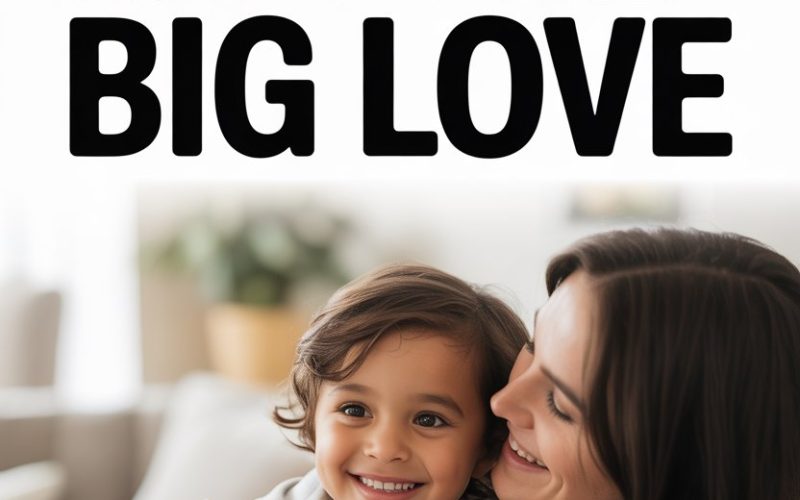Parenting is a bit like assembling flat-pack furniture: you’re handed a bundle of pieces and just enough instructions to cause a meltdown.
Yet, when it comes to showing kids that they’re truly loved, the manual is surprisingly simple—and wonderfully forgiving.
Those small gestures you might dismiss as “just part of the day”? For little ones, they’re love letters written in the secret code of childhood.
Here’s how to make sure your kids feel just how much they matter—no grand gestures required, promise.
1. Morning Greetings That Actually Mean Something
Picture your child’s first seconds after waking up. Will they remember the rush to get shoes on or the smile and silly “good morning!” you share, no matter how zombie-like you feel?
According to child psychologist Dr. Laura Markham, even a two-minute connection each morning sets the emotional tone for the whole day.
Try sitting on the edge of their bed, ruffling hair, or singing “Good Morning, Sunshine” like you’re auditioning for a B-list musical. The memory will stick (even if your singing voice doesn’t).
2. Listening Like They’re the Only Person in the Room
Kids have radar for divided attention. You might think you’re acing multitasking by checking email while nodding at their story about the world’s stickiest glue, but they know.
Eye contact, an actual pause in scrolling, and real questions—“Wow, what happened next?”—are pure gold for their self-worth.
Research from the University of Washington shows that children who feel truly heard have better emotional regulation and stronger bonds with their parents.
3. Notes in Lunchboxes, Shoes, or Pockets
Never underestimate the power of a wonky doodle or a three-word scribble tucked into their lunchbox. Even older kids who’d sooner eat a sock than admit it love a note that says, “You’re my favourite weirdo.”
If you’re too bleary-eyed in the morning, slip a sticky note in their shoe or pencil case—think of it as guerrilla love bombing.
These tiny surprises offer reassurance when you can’t be there—like carrying a piece of home in their pocket (minus the crumbs).
4. Saying Sorry—And Actually Meaning It
Every parent loses their cool. (Show me the saint who hasn’t yelled about toothpaste in the carpet.) Apologizing to your child not only models humility and accountability, it tells them mistakes don’t break bonds.
Licensed therapist Nedra Glover Tawwab highlights that apologies from adults help kids develop trust and emotional resilience.
“Sorry I snapped at you about the Lego minefield. I was feeling stressed, not angry at you.” Fourteen words that teach more than any lecture.
5. Letting Them Teach You Something
Children spend all day being taught, corrected, and shepherded. Let them flip the script. Ask how to Minecraft, tie a scarf, or do that odd TikTok dance (brace yourself).
Suddenly, you’re the student, and they’re beaming with pride.
This role reversal gives your child a sense of competence—and reminds them you value their unique knowledge, even if you do end up flossing terribly in the lounge.
6. Special Time That Isn’t a Reward or a Bribe
Your kid’s day is a parade of instructions: “Brush your teeth, get your shoes, stop licking the wall.” Try carving out ten minutes that’s just about being with them, with no agenda.
Label it “special time,” set a timer if you must, and let them pick the activity—even if it’s pretending to be a pile of leaves.
Stanford University research on parent-child play found that these small pockets of undivided attention boost self-esteem and cut down on whining—an appealing bonus for everyone involved.
7. Rituals and Inside Jokes
Shared rituals—be it Friday night pancakes or the secret handshake you made up waiting for the bus—create a sense of belonging. Inside jokes remind your child they’re seen and loved for exactly who they are, not just who they’re supposed to be.
Dr. Harriet Heath, author of “Using Rituals to Teach and Nurture,” points out that children crave predictable, meaningful moments.
Even something as simple as a silly phrase whispered at bedtime becomes an anchor in their memory.
8. Asking for Their Opinions (and Truly Considering Them)
You might not hand over the dinner menu or vacation planning, but asking what they think about takeaways or which park to visit this weekend tells them their voice matters.
When you act on their input—even if it’s just adding pineapple to the pizza—they feel like valued contributors, not passengers on the family bus.
Child development experts at the Raising Children Network note that involving kids in family decisions, even in small ways, supports independence and trust.
9. Celebrating Little Wins and Everyday Bravery
Not every day comes with trophies or gold stars, but children are constantly stretching themselves—trying broccoli, saying hi to a new friend, riding without training wheels.
Celebrate these moments, even with a simple, “That took guts! I’m proud of you.”
Positive reinforcement, as shown in a Harvard study on child motivation, encourages kids to step out of their comfort zones again and again, knowing you’ve noticed the effort, not just the outcome.
10. Hugs, High-Fives, and the Magic of Physical Connection
Affection doesn’t have to be a bear-hug worthy of a rugby scrum. Ruffling hair, a quick squeeze, or a high-five after a tough spelling word all register as “I love you” for a child.
Research from the Touch Research Institute at the University of Miami has shown that positive touch reduces stress and forges strong parent-child bonds.
For kids whose love language is physical affection, skipping a goodnight hug is akin to leaving the jam out of a Victoria sponge.
The Love They Feel is the Love They Remember
Kids won’t recall every packed lunch, bedtime story, or how you somehow managed to stay awake through three performances of their school play.
What sticks, years down the line, are these small, repeated gestures—the rituals, the apologies, the moments you set aside the to-do list and really paid attention.
Big love isn’t built on grand gestures. It’s stitched together from a hundred tiny moments that whisper, “You matter.”
Busy doesn’t have to mean distant. Sometimes, all it takes is a note in the lunchbox or a silly handshake before school to send your child off into the world with a full heart—and maybe a little jam on their face.
And honestly, isn’t that what we’re all aiming for?




